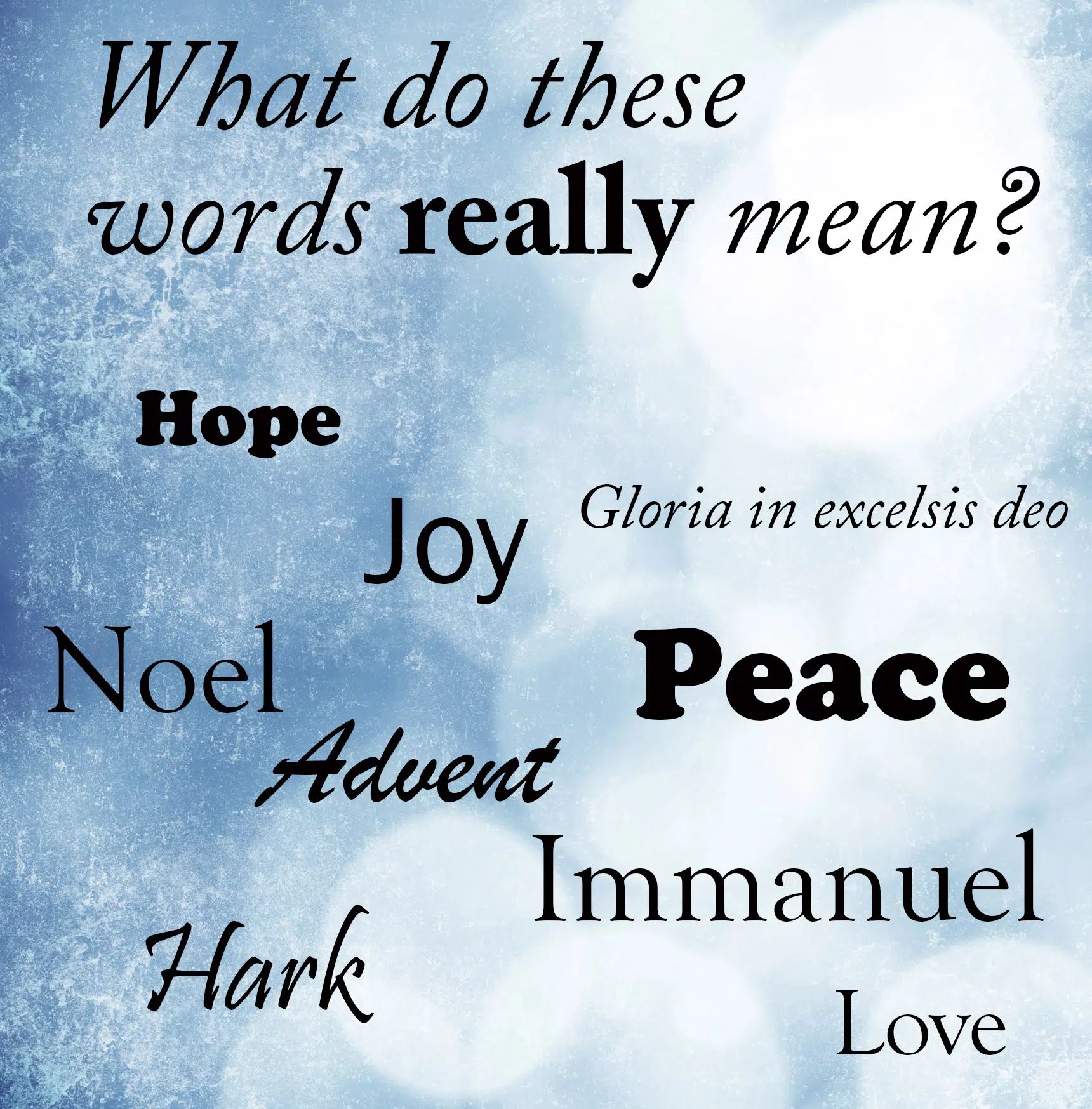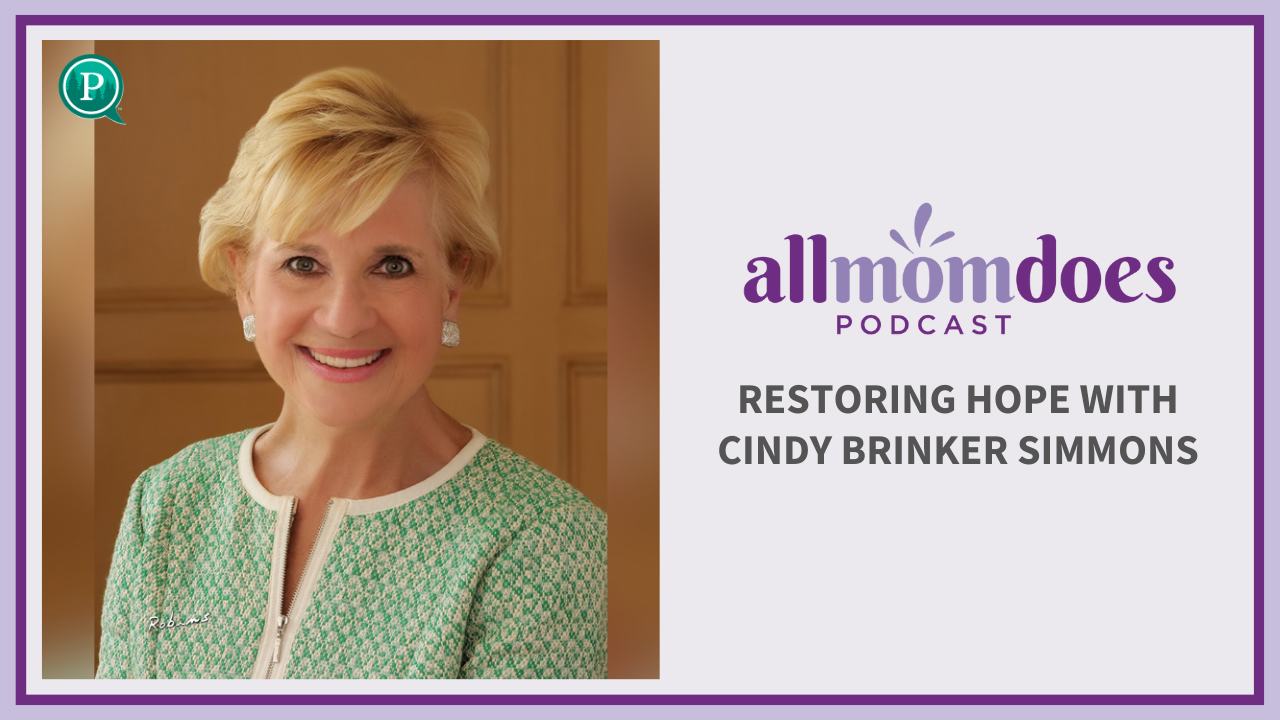I received a Christmas card in the mail the other day that was different than the others I had received. It asked me to reflect on some of the words heard during the Christmas season and take in what they really mean. Sometimes we are so busy that we fall back on routine and tradition without taking the time to let it all sink in.
Here they are! Enjoy!
Advent
Derives from the Latin word “adventus”. A coming, approach or arrival. A period of four weeks before Christmas when Christians prepare for the coming of Christ. Each week has a theme to ponder as they anticipate the celebration of Jesus birth on Christmas Day.
Hope (Wait)
The Hebrew word for wait is the same as hope. The theme for the first Sunday in Advent. It is not a desire for something that you want but rather confidence that God keeps His promises. Just as the believers of the Bible hoped for/waited for Christ to be born, so we wait for/hope for Christ’s return. It is considered “active waiting”. This does not mean being “busy” but being fully present in each moment that something significant is happening right where you are and that you can be a part of it.
Peace (Prepare)
The theme for the second week in Advent. In Old Testament scripture it is a very prominent concept. The most common term is “Shalom” emphasizing wholeness or completeness. In the New Testament the Greek word used is “Eirene” which envelopes the concept of Christ’s birth, death and resurrection which put an end to the dominion of sin and brought peace between God and man and between all believers. Jesus is the only source of true peace. It was the angelic promise given at Christ’s birth in Luke 2:14, “Glory to God in the highest, and on earth peace to men on whom His favor rests”.
Joy (Rejoice)
With Greek and Hebrew origins it is the theme for the third week in Advent. Joy is not pleasure or happiness. It is a state of delight and well-being, regardless of our circumstances, that results from knowing and serving God. Just like peace, we cannot produce it ourselves but it is available to anyone who seeks it through Christ. In the New Testament book of Luke chapter 2, verse 10 & 11 an angel appears to the shepherds announcing Jesus birth. It says, “But the angel said to them, “Do not be afraid. I bring you good news of great JOY that will be for all the people. Today in the town of David a Savior has been born to you; he is Christ the Lord!”
Love
Love is the final theme of the Advent season. Appropriately because, “God so LOVED the world that He gave His one and only Son, that whoever believes in Him shall not perish but have eternal life. For God did not send His Son into the world to condemn the world, but to save the world through Him.” John 3:16-17 God sent Jesus knowing Jesus would have to die in order to bring peace and mend the brokenness that sin creates between humans and God. John 15:13 says, “Greater love has no one than this, that he lay down his life for his friends.” Love is a noun AND a verb. It is an active emotion of selflessness, loyalty and commitment that is unconditional. And we are encouraged to love as God has loved us. Romans 13:9 says, “The commandments, “Do not commit adultery”, “Do not murder”, “Do not steal”, “Do not covet”, and whatever other commandments there may be, are summed up in this one rule: “Love your neighbor as yourself”.
Immanuel
“God with us”. Prophesied in the Old Testament by Isaiah 7:14, “Therefore the Lord himself will give you a sign: The virgin will be with child and will give birth to a son, and will call him Immanuel.” Fulfilled in the New Testament in the book of Matthew 1:22-23, “All this took place to fulfill what the Lord had said through the prophet: “The virgin will be with child and will give birth to a son, and they will call him Immanuel” – which means, “God with us.”
Noel
In French origin it is another word for Christmas or a Christmas carol. In Latin origin it means birthday, referring to the birth of Christ.
Hark
It means “listen up” or “pay attention”. The angels proclaim to the shepherds (and the world) that something significant has happened. The prophecy of Old Testament has been fulfilled and God and mortal man have been reconciled through a baby’s birth.
Gloria in excelsis deo
The hymn beginning, in Latin, “Gloria in Excelsis Deo”, translates “Glory in the highest to God,” and in the English version, “Glory be to God on high”
References:
‘Concordia Self Study Bible’ NIV, copywright 1936
‘The Circle of Seasons’ by Kimberlee Conway Ireton, copyright 2008
‘Holman Illustrated Bible Dictionary,’ copyright 2003
Dictionary.com












